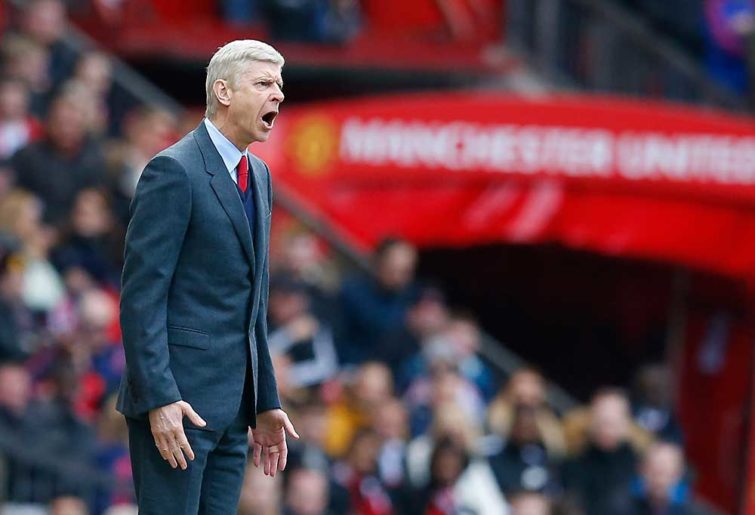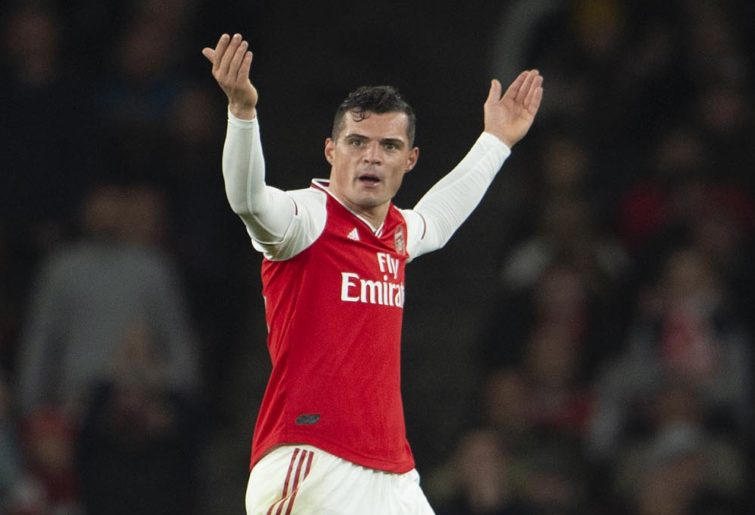'A great night': Gunners shoot Kai high at top of standings after obliterating Chelsea for biggest win in 94 years
Kai Havertz has scored twice against his former team and Ben White also got a brace as Arsenal brushed aside a dismal Chelsea side…
Opinion
Last week, Mesut Ozil curated an Instagram post in which he addressed China’s repression of Uighurs in Xinjiang.
Describing them as “warriors”, he highlighted the suffering of his fellow Muslims before criticising Muslim majority countries for their muted response.
Accounts emerging from the westerly Chinese region are shocking. They detail concentration camps, brainwashing, rape and torture. Leaked documents show that people are receiving ten-year sentences for seemingly minimal crimes.
Ozil’s comments put Arsenal in a tricky position. China is one of the club’s most significant foreign markets so any criticism against Beijing could have been economically damaging. Moreover, the recent debacle in which Hong Kong suspended its business ties with the NBA’s Houston Rockets has reminded the world that Chinese favour comes with a condition: toe the rhetorical line.
Nonetheless, Arsenal could have protected its players and its business interests. Instead, in an act of shrinking appeasement, the club offered a statement that betrayed not only Ozil but Arsenal’s core values.
Addressing the Chinese public on Weibo, Arsenal declared that they have “always adhered to the principle of not involving itself in politics”. Although stopping short of actively criticising Ozil, Arsenal have nonetheless failed to protect their player.
They didn’t need to condemn Chinese actions. They simply needed to reassure Ozil the club backs his right to express his opinion. If Ozil feels betrayed by his employers’ flagrant cowardice, he is entirely justified.

(Julian Finney/Getty Images)
We used to talk about Arsenal DNA. Maybe it’s naïve to suggest that such an idea was ever anything more than a marketing ploy.
However, when I started supporting Arsenal at the age of ten, I was utterly convinced of this notion. In February 2005, Arsenal became the first English side to field a team completely made up of foreigners. When I came into school the next day, I remember my mates laughingly refer to the Emirates Stadium as the “Immigrants’ Stadium”.
Although not great for the English game, this was something to be proud of. I believed that it was demonstrative of a club with the vision and bravery to look beyond its immediate parameters in search of success – a trend that began under Herbert Chapman and reached its apex with Arsene Wenger’s appointment in 1999.
I remember crying when, in the 2006-07 season, West Ham beat us 1-0 thanks to a late Marlon Harewood winner. At times, our build-up play had been spell-binding. However, our aversion to actually shooting lost us the game.
Even then, I could take pride in our commitment to fluid, passing football. This was the era when Jose Mourinho’s attritional, siege-warfare football was proving so effective. But, for all our shortcomings, we were playing some of the best football in Europe.
Back then, Arsenal performances were like pieces of experimental theatre: daring and beautifully crafted, even if the climax was, at times, unconvincing.
In 2008, I read a Daily Mail interview with Arsene Wenger. It reinforced my conviction of not only Arsenal’s unique character, but club football’s capacity to promote values of creativity, compassion and learning.
In the interview, Wenger discussed everything from the pros and cons of contrasting economic systems to what drives him in his pursuit of success. What grabbed me, however, was his transparent, almost utopic vision for Arsenal.
He spoke about his desire to raise a core group of young, primarily British players, who developed together and thus formed a connection with the club and the fans.
When asked about the riches of Manchester City and Chelsea, he replied: “I do not envy them”.
Although Wenger’s grand plan never quite came to fruition, his vision of a club built on ideals of fraternity, courage and loyalty were demonstrative of a man and a club that sought to align themselves with the morality of the outside world.

(AP Photo/Jon Super)
How times have changed.
The Arsenal I see today is unrecognisable. Our lack of identity has been most clearly evidenced on the pitch. Our players are a mishmash of dissembled parts with no clear relation to one another.
Over the past 18 months, we’ve watched Unai Emery furiously jamming these pieces together with increasing agitation, each concoction more incoherent than the last.
Even more worrying is the abandonment of our players and our sense of disunity. I know lots of Arsenal fans will disagree with me, but the club’s response to the Granit Xhaka controversy — when the skipper was booed by his own fans as he was substituted against Crystal Palace — was disgraceful.
The fans who booed Xhaka are a toxic element in our club. Admittedly, Xhaka isn’t very good. However, you could never accuse him of lacking heart or effort. His response was petulant, but understandable given the degree of abuse he’s been subjected to by a small but noisy minority of moronic fans.
We should have backed our captain. Instead, we threw him under the bus.

(Photo by Visionhaus)
Bus-throwing has also been evident in the handling of the Ozil case. Arsenal’s inability to at least respect the opinions of the player as he condemns the clearest of human rights abuses demonstrates that nowadays, business comes first.
The protection of our players, our responsibility to wider communities and our dignity as a club are but fusty relics – a quaint yet frivolous curio best left in storage alongside the sixpences and pocket watches.
As the Wenger era came to a close, one of the criticisms that many fans — myself included — levelled at the club was that Wenger held disproportionate power. But this Ozil farce would never have occurred with the Frenchman at the helm. His recent comments defending Ozil suggest as much.
I feel a bit like I’m screaming into the wind. After all, who really cares?
The two most successful English clubs have of the last five years have been presided over by an alleged Russian money launderer and an oil-rich regime. Despite this, the profitability and popularity of the Premier League persists unabated.
The English Premier League is a titanic force. In the 2018-19 season, Moldova, Afghanistan, Turkmenistan, North Korea and Cuba were the only countries that didn’t broadcast English football. It doesn’t matter where you are in the world, the Premier League is football’s lingua franca.
BBC research found that half of Premier League clubs could make a pre-tax profit without any match-day sales. With football’s perpetual globalisation, there is a declining need for a club’s values to correspond with those of their domestic fan-base.
Nonetheless, the retention of the domestic fan-base is integral to the continued success of the Premier League. The unique atmosphere on English terraces manifests itself on the pitch through the Premier League’s world-renowned physicality.
This raw, undiluted brand of football is what makes the league profitable on such a global scale.
As is often stated, without the fans, football is nothing. So, I pose the question: for how long will football fans support clubs that share none of their basic values?
After all, what does a 90th-minute winner against Spurs mean when the real losers are the Uighurs rotting in Chinese concentration camps?